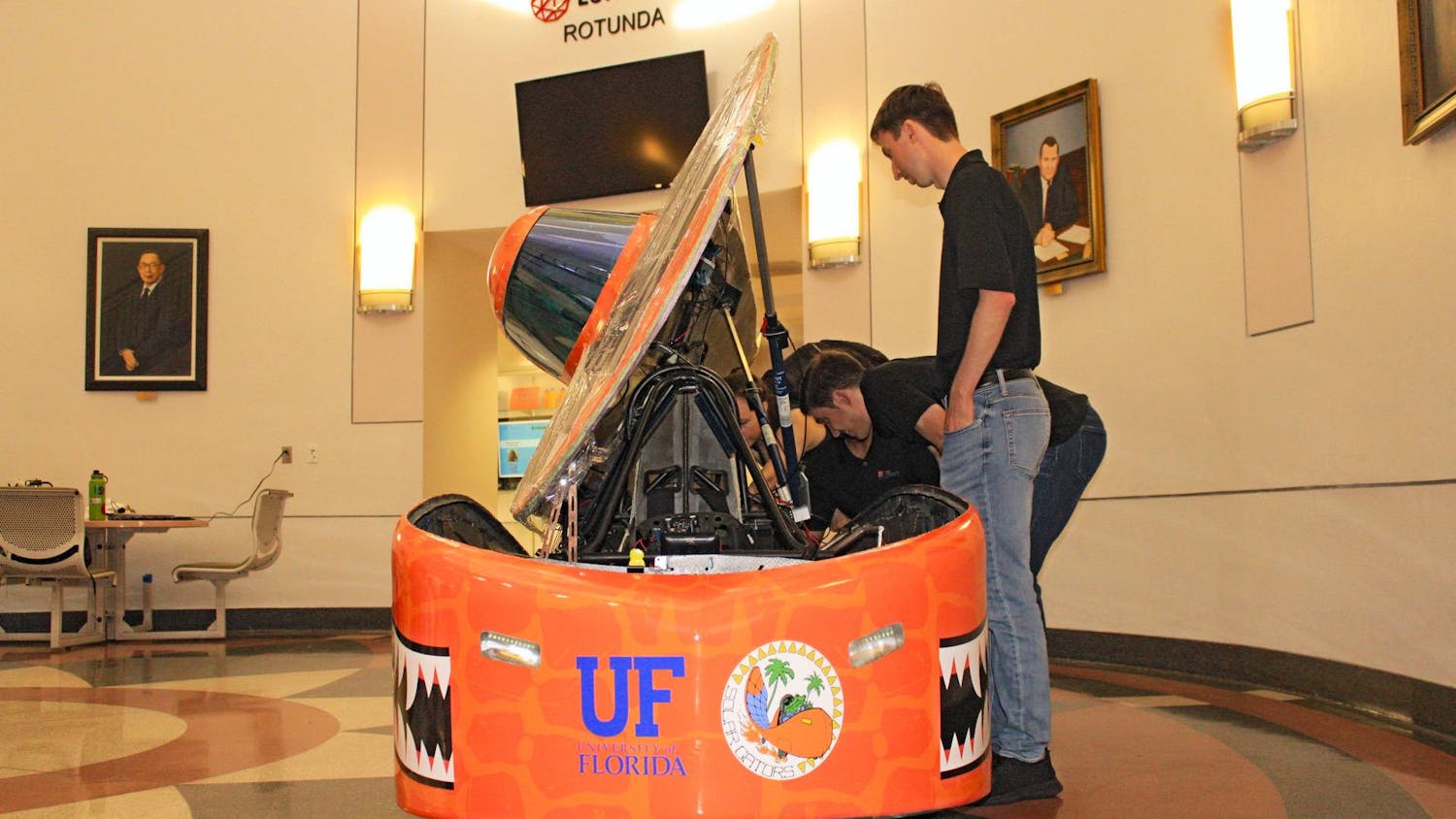When Troy Bryant and Sean Lyons were first year engineering students at UF, they joked about being senior design partners and having the best project.
Five years later, to their disbelief, both of those visions came true. On July 27, Bryant and Lyons, two recent UF graduates, won first place in the annual Texas Instruments Innovation Challenge for their project, Seven Deadly Synths: a non-contact synthesizer.
Yet, they were not the only gators at the winner’s circle. UF’s Jordan Street, who received third place for his project Hercules Autopilot, was present as well.
This year, 300 teams from across the U.S., Canada and Mexico submitted their projects online to the competition, according to a press release. The top three finalist teams, two of which were from UF, were invited to Dallas, Texas, to showcase their projects in the finals.
The idea behind Seven Deadly Synths was to create a musical instrument that could be played by anyone regardless of skill. The thought first emerged when Lyons and Bryant were juniors, but they did not start developing it until last semester in their senior year when they began taking design.
As musicians themselves, Bryant and Lyons, who were part of a band in high school called Rush of Reality, realized that in order to play an instrument, advanced motor skills were required.
“Playing a chord on the guitar is like doing gymnastics with your fingers,” said Lyons, who’s been playing the guitar for more than seven years now.
Fueled by their passion for music and electronics, the two electrical engineering students challenged themselves to create a musical device that could be operated without advanced motor skills.
The outcome was a synthesizer instrument, made out of 35 Texas Instruments components, which could be operated using basic motions, such as the wave of a hand, Bryant said.
The device used infrared sensors to detect motion, allowing it to play different notes based on the location of a hand. It specifically benefits disabled musicians who have lost the fine motor skills needed to play an instrument.
“The beauty of creating music is something that should be accessible to anyone,” Lyons said. “If (our instrument) could give one person music, it’ll all be worth it.”
The team spent about 60 hours a week working on the device for five months. Originally, the project was just supposed to be for their senior design class, but they were encouraged by faculty members to enter the contest, so they did. However, they never imagined they would win first place.
“We honestly never thought that we would be this far or even reach this big of an accomplishment,” Bryant said. “It’s still kind of surreal.”
As first place winners, the team received $10,000. Lyons, who was a first-generation college student, plans to use his share of the money to pay off his student loans.
“It really has changed my life,” he said. “I would be paying these loans a lot longer if we hadn’t won.”
Street, the third place winner, received $5,000 for his project, the Hercules Autopilot. The former graduate student’s project was a more complex version of his senior design project, Gator Pilot, which received first place in UF’s design competition last year.
The Hercules Autopilot is a full-flight control system that allows unmanned aerial vehicles to fly an autonomous path, Street said. It is specifically designed for quadrotors, which are helicopters that are lifted by four propellers, or rotors.
The device has multiple applications. From performing search and rescue missions to allowing architects to survey construction sites from above, it can perform an array of tasks with precision.
“Let’s say you have some sort of natural disaster, and you have people that need medication, and you can’t really get to them through a car,” Street said. “This gives you the ability to fly in whatever you need without having the overhead cost of a large helicopter or another vehicle like that.”
Contrary to popular belief, the project was not named after the classic Disney movie, though Street admits that it is a great movie. Hercules, in this case, is the codename for the main processor that runs all the flight algorithms.
“That’s what runs all the software that makes everything possible,” Street said. “So I kind of used that in coming up with the name of the project.”
[A version of this story ran on page 4 on 8/3/15]





